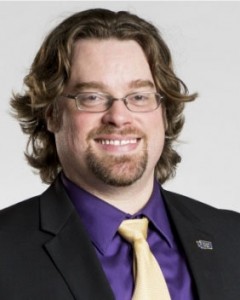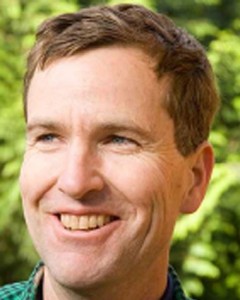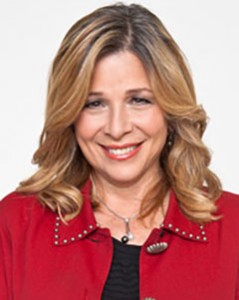It can be so exciting to get a job offer or to find a postdoc position that it can be tempting to look no further. However, finding the right “fit” involves many dimensions beyond just the research focus. Universities, companies, governmental agencies, and non-profits each have their own cultures. Furthermore, individual departments or even specific research groups may operate with their own norms and practices. Regardless of your sector, you will spend a lot of your waking life at work. Doing your research on the work environment will go a long way towards determining your long-term satisfaction and success.
Often, people believe an organization’s culture is the same as its mission. However, the culture goes beyond statements to understanding how work gets done and what work gets valued, and by whom. You will be making a big decision for both your short- and long-term future. Therefore, you should reflect on the things that matter most to you in a future employer and job responsibility. With this information in hand, you will be set up for a successful transition, and hopefully, a long and satisfying career.
How do you find out if something is the right fit for you? Here are a few questions you can ask.
Where Do You Fit? First ask yourself what you need to not just survive, but to flourish. Not sure? Here are some self-assessment questions to get you started.
Do you agree with the company’s stated mission, vision and values? All employers publish their mission statement. Make sure it fits with your own convictions. Do your due diligence and interview current (or former) employees to see if and how those values are practiced or demonstrated day-to-day. Find out how the organization is viewed within the community where it resides.
With which management style are you most comfortable? For example, do you like decisions to be made autocratically or independently; based on consensus building or at the whim of a single individual? There are many methods of communication — do you like meetings and face-to-face interactions or would you rather respond to written requests (e.g., email and task lists)? What is your place within the organizational chart, and will you have enough access to your supervisors and decision makers?
What is the work-life balance you are seeking? Do you “live to work” or “work to live”? These two choices are very different, and they will affect personal relationships at work. For example, are you free (and willing) to work late nights or on weekends? Will you feel left out if your colleagues regularly go to happy hour while you have other after-work commitments? Importantly, is the job located in a part of the country or the world where you can be happy?
What are the day-to-day practices at work? You should be aware of general policies governing your workday: e.g., dress code, benefits, annual review, methods for evaluation and improvement, etc. How transparent and equitable are the practices for receiving recognition and promotion? It’s important to gather as much information prior to transitioning to a new job so you’re not surprised on day one.
Do Your Homework: Treat your job search like a research project. Gather as much information as possible to inform your decision. Don’t think, “I can tolerate anything — how bad can an organization’s culture be?” This is simply not true, and you want to set yourself up for success!
Check references: When discussing a potential job offer, ask to review employee surveys. Make use of your interactions with current employees during the interview process to ask pointed questions about their experiences and whether they’re truly happy. Importantly, ask about employee turnover rate — this number will be low in successful organizations with satisfied employees.
Set priorities: It’s unlikely a single opportunity will satisfy all of the things you’re looking for in an organizational culture. Therefore, after your self-assessment, ask yourself what the 1-2 things that are most important to you? If you are not sure how to assess or prioritize, check out Doug’s Guides for a few short self-assessments that can help you learn more about your own work style and work culture preferences.
Acknowledgments: Insights shared here were featured in a workshop by Claudia Adkison and Kevin Grigsby at the National Postdoctoral Association meeting, March 2017 San Francisco.It can be so exciting to get a job offer or to find a postdoc position that it can be tempting to look no further. However, finding the right “fit” involves many dimensions beyond just the research focus. Universities, companies, governmental agencies, and non-profits each have their own cultures. Furthermore, individual departments or even specific research groups may operate with their own norms and practices. Regardless of your sector, you will spend a lot of your waking life at work. Doing your research on the work environment will go a long way towards determining your long-term satisfaction and success.
Often, people believe an organization’s culture is the same as its mission. However, the culture goes beyond statements to understanding how work gets done and what work gets valued, and by whom. You will be making a big decision for both your short- and long-term future. Therefore, you should reflect on the things that matter most to you in a future employer and job responsibility. With this information in hand, you will be set up for a successful transition, and hopefully, a long and satisfying career.
How do you find out if something is the right fit for you? Here are a few questions you can ask.
Where Do You Fit? First ask yourself what you need to not just survive, but to flourish. Not sure? Here are some self-assessment questions to get you started.
Do you agree with the company’s stated mission, vision and values? All employers publish their mission statement. Make sure it fits with your own convictions. Do your due diligence and interview current (or former) employees to see if and how those values are practiced or demonstrated day-to-day. Find out how the organization is viewed within the community where it resides.
With which management style are you most comfortable? For example, do you like decisions to be made autocratically or independently; based on consensus building or at the whim of a single individual? There are many methods of communication — do you like meetings and face-to-face interactions or would you rather respond to written requests (e.g., email and task lists)? What is your place within the organizational chart, and will you have enough access to your supervisors and decision makers?
What is the work-life balance you are seeking? Do you “live to work” or “work to live”? These two choices are very different, and they will affect personal relationships at work. For example, are you free (and willing) to work late nights or on weekends? Will you feel left out if your colleagues regularly go to happy hour while you have other after-work commitments? Importantly, is the job located in a part of the country or the world where you can be happy?
What are the day-to-day practices at work? You should be aware of general policies governing your workday: e.g., dress code, benefits, annual review, methods for evaluation and improvement, etc. How transparent and equitable are the practices for receiving recognition and promotion? It’s important to gather as much information prior to transitioning to a new job so you’re not surprised on day one.
Do Your Homework: Treat your job search like a research project. Gather as much information as possible to inform your decision. Don’t think, “I can tolerate anything — how bad can an organization’s culture be?” This is simply not true, and you want to set yourself up for success!
Check references: When discussing a potential job offer, ask to review employee surveys. Make use of your interactions with current employees during the interview process to ask pointed questions about their experiences and whether they’re truly happy. Importantly, ask about employee turnover rate — this number will be low in successful organizations with satisfied employees.
Set priorities: It’s unlikely a single opportunity will satisfy all of the things you’re looking for in an organizational culture. Therefore, after your self-assessment, ask yourself what the 1-2 things that are most important to you.
Acknowledgments: Insights shared here were featured in a workshop by Claudia Adkison and Kevin Grigsby at the National Postdoctoral Association meeting, March 2017 San Francisco.
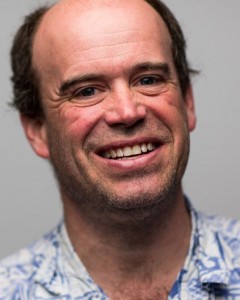
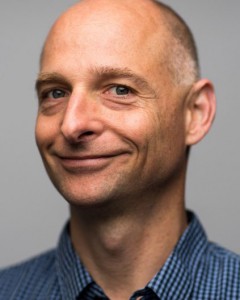
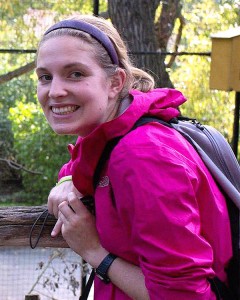 Neighborhood: Fremont
Neighborhood: Fremont